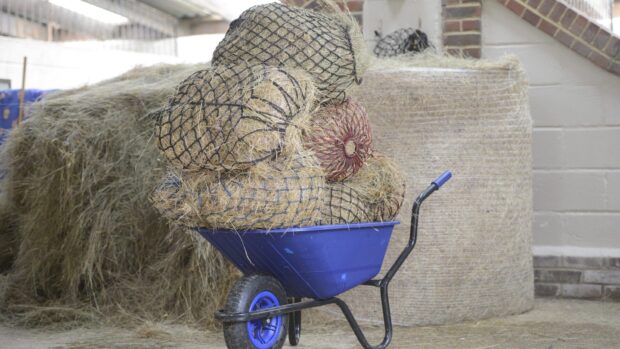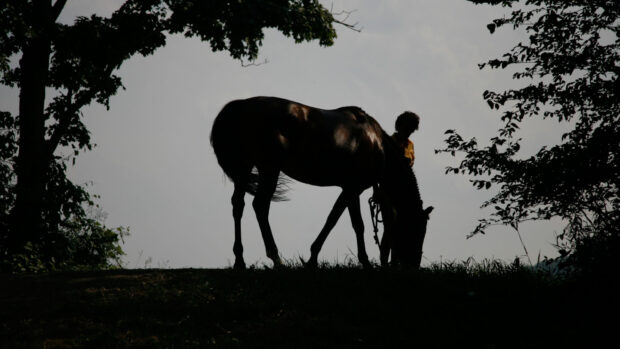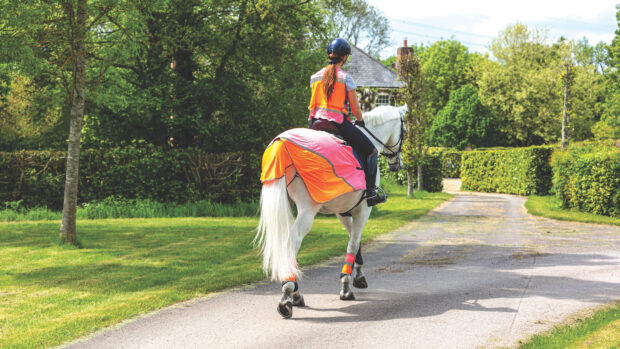The National Fallen Stock Scheme, which provides livestock owners with a legal and inexpensive method of disposing of dead stock, will start on Monday 22 November, Defra announced last week.
The May 2003 EU Animal By-Products Regulation bans on-farm burial and burning of fallen animals, including horses, and requires livestock owners to dispose of deadstock by rendering or incineration. To help farmers meet the new rules, DEFRA and the devolved authorities in Wales, Scotland and Northern Ireland joined forces with industry representatives to set up a low-cost National Fallen Stock Scheme.
Run by the National Fallen Stock Company Ltd (NFSCo), the scheme is a partnership between the government and the farming industry and will “give livestock owners access to a guaranteed, nationwide, biosecure collection service at reasonable prices,” according to chairman of the NFSCo board, Michael Seals.
Farmers and horse owners can register for the scheme from 22 November and collections will start immediately after registration. A helpline (tel: 0845 054 8888) is already open to answer any questions.
“Although the fallen stock scheme is coming into being on 22 November, a lot of collectors are already operating under the EU regulation. What the scheme does is round them up to make it easier for livestock owners to find a collector and dispose of dead stock,” says Doug Kempster from DEFRA.
The scheme’s annual registration fee will cost £28 to equestrian businesses and livestock farmers. This is on top of the cost of collections, which are variable and will be charged by direct debit each month.
Individual horse owners can opt for a reduced £15 one-off fee, which will allow access to the collection service only once a year. Small equestrian businesses with very few animals can decide whether to go for the £28 annual registration or the £15 one-off fee. “Ultimately, it’s a business decision,” says Kempster. But, he points out, “if you pay £15 one-off and two horses die in the same year, you’ll end up paying £30, so you are £2 short [over the annual subscription].”
Once they have subscribed, scheme members will be able to contact a registered collector, who will pick up the deadstock within 48 hours. Every month, NFSCo will charge members the cost of collection and will make payments to individual collectors.
The government is giving £10million towards the costs of collection in the first year but horse owners and equestrian businesses will not be eligible for this contribution. “[It] only applies to farmed livestock and horses don’t come under that definition, so they cannot receive state aid under EU rules,” explains Kempster.
The National Fallen Stock Scheme is voluntary, so farmers and horse owners can continue to ask their local hunt to dispose of carcases. However, hunts will be required to meet knackers’ yard standards if they want to feed fallen stock to their hounds.
Hunt kennels can also register as collectors for the scheme but only 30 have signed up so far. “It’s not very many,” says Alistair Jackson of the Master of Foxhounds Association.
However, some 140 hunts have upgraded their premises to DEFRA standards and will continue to offer their collection services outside the scheme. “All the hunts that were picking up are continuing to pick up but they have chosen not to do it under the scheme because they would not have the same flexibility in charging farmers,” explains Jackson. “Also, they don’t want to pick up under the new postcodes of the National Fallen Stock Scheme, which don’t match hunt boundaries.”
There are currently more hunt collection outlets picking up under the old hunt boundaries system than knacker yard outlets registered under the National Fallen Stock Scheme.
According to Jackson, “farmers have encouraged hunts to pick up under the old system because they don’t want to pay through a variable direct debit mandate,” as required by the rules of the National Fallen Stock Scheme.



